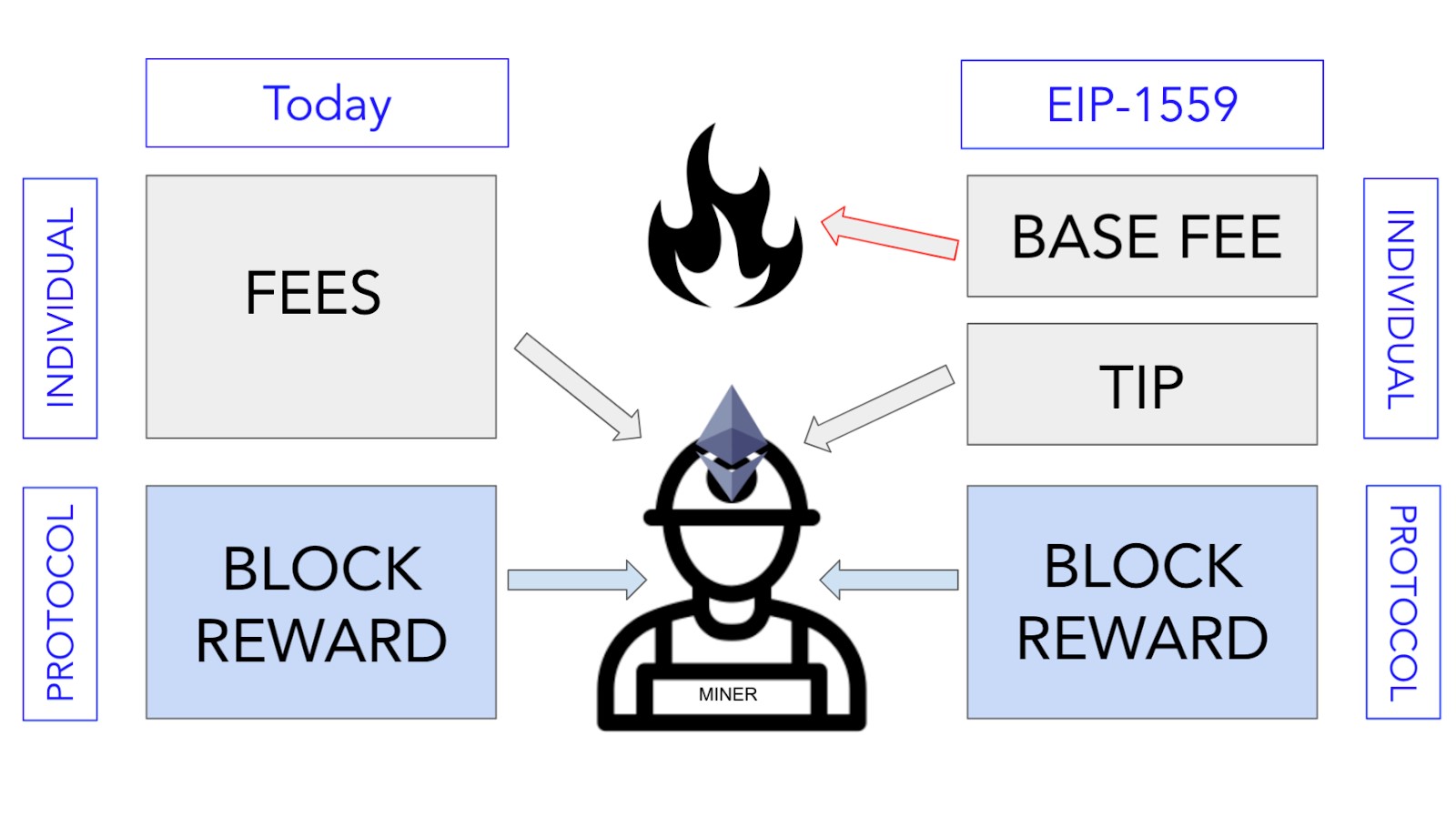Ethereum Improvement Proposal 1559 (EIP-1559) is an upgrade for the Ethereum protocol that solves the problems of volatile transaction fees and inflation of Ether. The burning mechanism, which was part of the Ethereum London upgrade, was introduced in early August 2021.
EIP-1559 introduced a new fee structure designed to address the inefficiencies and volatility of the previous system. The core concept of EIP-1559 is the introduction of a base fee, a fixed price that all transactions must pay to be included in a block. This base fee is dynamically determined based on network demand, ensuring that miners are fairly compensated for their efforts.
The EIP-1559 proposal
EIP-1559 is both an upgrade for the Ethereum network and an economic upgrade for ETH as an asset. Prior to the upgrade, a user essentially had to bid on their transaction to get it included in a block. This drove up prices during periods of high demand. The proposal introduced fixed prices (or base fees) for network transactions, eliminating auctions. This base fee has been eliminated.

The new fee structure aims to make ETH deflationary over time, as this could burn more ETH in base fees than is generated in mining rewards. It is also intended to reduce network congestion by making more efficient use of block capacity. Block capacity is increased and decreased based on network usage, resulting in either higher or lower fees. Similarly, the implementation of EIP-1559 resulted in the decoupling of transaction fees from network security and the introduction of a permanent block subsidy.
EIP-1559 changes
The changes introduced by EIP-1559 can be summarized as follows:
- Reduced fee volatility
The burning of base fees has helped to stabilize gas prices, making them less prone to unpredictable spikes. This has made it easier for users to estimate transaction costs and plan their transactions accordingly. - More predictable transaction fees
EIP-1559 has replaced the auction-based fee model with a more predictable system, reducing the guesswork involved in estimating transaction costs. - Deflationary effect
The burning of base fees has a deflationary effect on the Ethereum network, potentially increasing the value of Ether over time. - Miner incentives
EIP-1559 has introduced a more equitable fee distribution system, ensuring that miners are fairly compensated for their work while also addressing concerns about potential rent-seeking behavior.
While EIP-1559 has made significant progress in improving Ethereum's fee structure, there are still some ongoing challenges that need to be addressed. For example, the dynamic adjustment of base fees can lead to occasional fee fluctuations, and the transition to the new fee mechanism has had some minor impacts on DApp performance.









